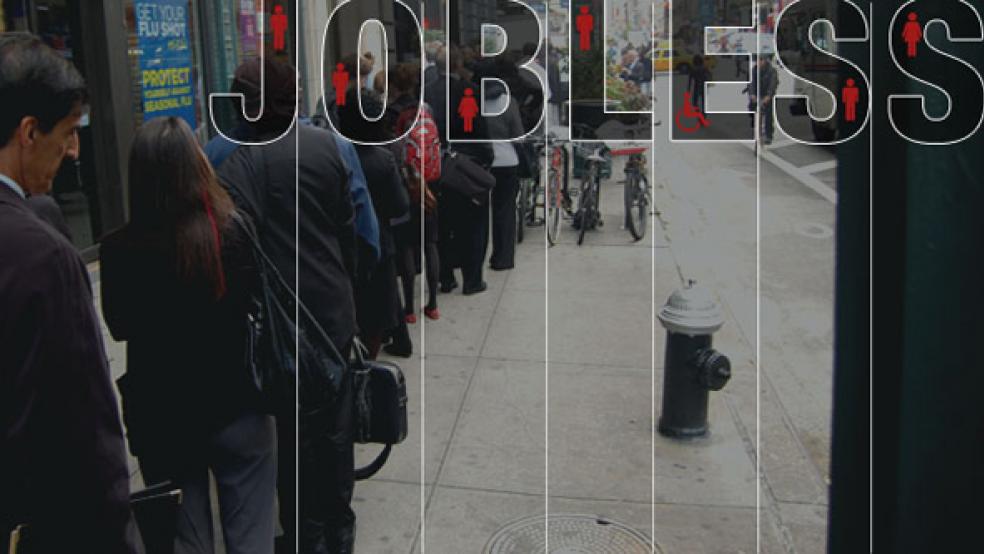The U.S economy expanded slightly last quarter, the Commerce Department is reporting, but that growth won’t do anything to lower the persistently high unemployment rate, economists say.
Slightly stronger-than-expected consumer spending and export activity buoyed the rate at which the U.S. economy expanded in the second quarter of 2011, to 1.3 percent, up from the 1 percent growth the Commerce Department predicted last month.
But today’s report hardly has economists cheering. The economy grew at a yearly pace of 0.9 percent in the first half, the worst six-month showing since the recession officially ended more than two years ago. Consumer spending climbed to a 0.7 annual rate, compared with the 0.4 percent Commerce calculated a month ago, but still the smallest gain since the fourth quarter of 2009. Export growth added 0.24 percent to the U.S. economy, with the gap between U.S. exports and imports tightening more than Commerce expected.
Economists say while a double-dip recession isn’t necessarily imminent, the economy won’t grow enough to cut the 9.1 percent unemployment rate over the next month or two. GDP could rise 2 to 2.5 percent in the current July-September quarter, say economists from Wells Fargo and IHS Global Insight. “But we expect growth to slow again in the fourth quarter and still see recession risks at a high 40 percent,” says Nigel Gault, chief economist at IHS Global Insight.
“The economy remains in a growth recession, which is too close to the edge for any level of comfort,” says Diane Swonk, chief economist for Mesirow Financial. A steeper-than-expected decline in state and local spending last quarter negates any possibility of hiring, which the GDP gain might have brought with it, since job losses in previous quarters resulted from local spending cuts, she says. “It is amazing what we now accept as ‘good.’”
Today’s report did bring some positive news for U.S. corporations, which saw after-tax profits rise at a 4.3 percent rate, compared with last quarter’s one percent gain; it’s the largest increase in a year. But companies aren’t using that money to hire permanent workers. They’re investing in equipment and sustaining operations with temporary workers, according to a new report this morning from Capital Economics.
“Businesses do not appear to have embarked on a significant round of layoffs…. Instead, the key issue is that firms have become even more reluctant to raise headcounts,” the report said. “Until new investment projects begin, firms have no need to take on extra workers.”
A survey of 140 CEOs out this morning from The Business Roundtable confirms that CEOs are especially hesitant about hiring over the next six months; they’re still rattled by the debt ceiling saga and the August S&P downgrade of the U.S. credit rating. Only 36 percent of the CEOs surveyed say they expect to boost hiring in the next six months, compared with 61 percent who said they planned to hire three months ago. Though 65 percent expect their sales to rise, that’s a 22-percent drop from the last survey.
Drops in sales and hiring projections are mostly results of Washington’s inability to make policy decisions in areas businesses depend on, W. James McNerney, chairman of The Business Roundtable and CEO of Boeing, on The Business Roundtable’s conference call this morning. “What would help is if the policymakers would make policy. Let’s get the trade agreements done, get tax decisions made, clear up some of the regulatory underbrush … to clarify for business decision makers what the environment is going forward.”





